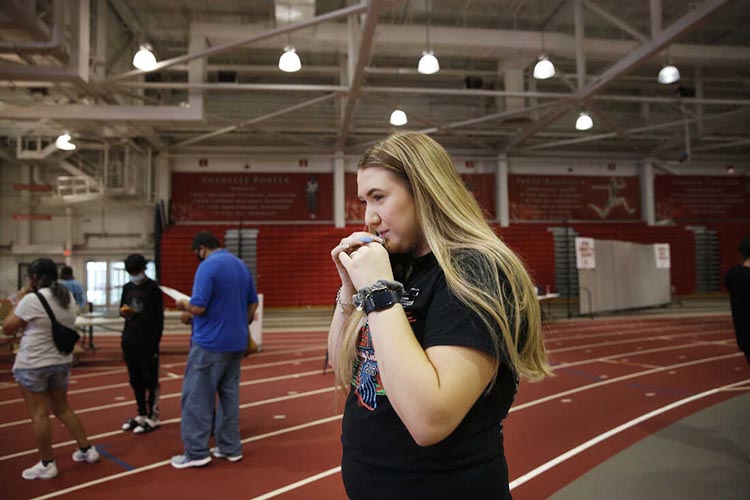
From Higher Ed Dive
By Jeremy Bauer-Wolf
Aug. 19, 2021
Dive Brief:
The surging coronavirus delta variant is spurring some colleges to make early changes to their health and safety plans as students arrive on campuses for the fall.
Some institutions are switching classes online for a few weeks, and at least one university delayed the start of its semester. Many colleges are also reinstating mandatory mask wearing where allowed by law, even among vaccinated students and employees.
Not every college is adjusting fall plans, however, prompting backlash particularly among faculty members.
Dive Insight:
The delta strain shattered hopes for a typical start to the academic year. Coronavirus numbers are skyrocketing again in the U.S., and health officials warn the country could soon tally 200,000 new cases per day.
The variant’s effects are already apparent on some campuses. Amid rising cases, Wiley College, a historically Black institution in Texas, instituted a campuswide quarantine on Aug. 11 that officials there expect to last at least two weeks, according to a local media report. Everyone on campus will remain isolated until they test negative for the virus.
Some colleges have set up new precautionary measures.
California State University, Stanislaus, pushed back its campus reopening. While classes are set to begin as scheduled Aug. 23, the institution won’t start in-person instruction until Oct. 1, its president announced last week. The university is allowing students to move into campus housing, but only if they show proof of vaccination, or documentation exempting them from receiving the shot and evidence of a negative coronavirus test.
South Carolina State University, a public HBCU, said it would postpone the fall semester by several days in an attempt to persuade students to get vaccinated at on-campus clinics and teach them about the coronavirus. The university also put in masking requirements after the state’s Supreme Court ruled that public colleges can issue blanket mandates covering those who are vaccinated and unvaccinated.
“As the university steps up its response to this pandemic, we will do all we can to encourage students, faculty, and staff to get vaccinated if they have not done so already,” Alexander Conyers, the university’s acting president, said in a statement.
But not every institution is modifying fall plans, much to the chagrin of some faculty members and staff. A petition from instructors at the University of North Carolina at Chapel Hill urges administrators to move classes online for four to six weeks, accusing the flagship institution of not having an “off-ramp” into remote learning. As of Thursday afternoon, more than 150 students and employees have already tested positive for the virus this month.
The UNC system isn’t mandating vaccines for those at its universities, but it is requiring students who don’t offer proof they’ve been inoculated to be tested for the virus weekly.
UNC-Chapel Hill was one of the first colleges to flip back to virtual learning last academic year after cases spiked, and it was criticized for letting politics influence its reopening plans.
In an interview with investigative outlet NC Policy Watch, Jim Thomas, a former Chapel Hill epidemiologist, said the institution’s mistakes mirror last year’s. Thomas told the publication that similar to last year, administrators’ posture is “one of determination” and that the narrative was they had considered all contingencies.
“The same is true this year. Thus, with the determination comes a lack of transparency,” Thomas told the publication.
Photo: NPR
Read this and other stories at Higher Ed Dive

